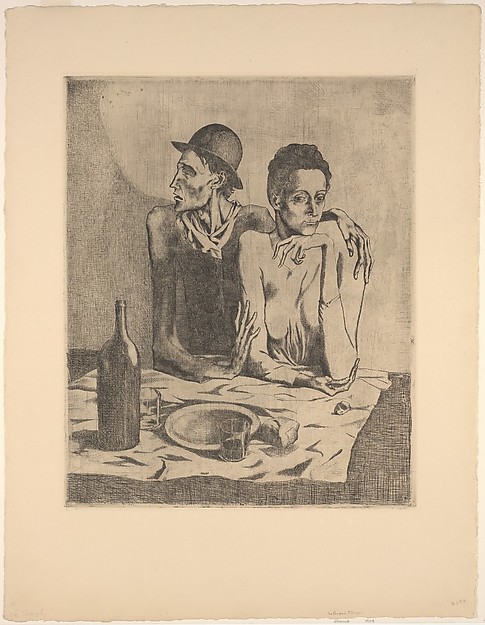Fasting and Equanimity
I hadn’t fasted in over a year.
That’s probably reason enough to conclude that life has been just a little bit
too hectic of late. Combine that with the difficulty I had choosing a day on
which to fast once I’d made up my mind to do so, and the evidence became
conclusive. A life too busy to accommodate a day on which to fast is a life in
need of simplification.
Once I’d made up my mind, though,
things fell into place quite nicely. No, I couldn’t find my special fasting tea
– it must have gotten discarded in the move – but I did find a ginger and
licorice root variety in the cupboard that would suffice. No, I didn’t prepare
ahead in order to have some nice green juice or carrot juice on hand, but I did
find some grape and orange juice in the fridge that would suffice. And, anyway,
isn’t that what fasting is all about: gaining greater understanding of that
which is sufficient? It is for me at least.
My last “solid” food was a bowl of
soup at around 7:00 p.m. This smaller than normal dinner meal, and a mostly
liquid one, eased me gently into my day of fasting. And with bedtime fast
approaching, I could fairly easily make it halfway through my fast without
changing my routine very much at all. Not that that is the goal. Rather, it is
a strategy to pace oneself, and ease the body into having to cope with the
change in routine.
Instead of my usual bowl of cereal
in the morning, I had a tiny glass of orange juice and my first sips of the
couple of cups of black coffee that I would finish over the course of the day.
It wasn’t till after my morning meditation was concluded that I began to
realize the effects of not eating – that sort of spacey, sort of mellow feeling
that makes at least a little bit of preparation most important. You see, a
normal day of “productive” activity is potentially too jarring, violent even,
for the state of mind one enters into as the day of fasting progresses. Thus, it’s
good to have a largely quiet and sedentary activity planned in order to
conserve one’s energy and remain in accord with a mind that is moving much more
slowly now.
Additional meditation or prayer is
ideal. Reading scripture, sutras, or other writings that support the intention
to fast works well too. I stuck to my plan of organizing my study this time,
which kept me immersed in my physical and mental space of meditation and contemplation,
even as my efforts veered off into the more “productive” realm of going through
my files, paying bills, and purging what was no longer needed.
This is not usually my favorite
activity! Under the circumstances, however, I was able to approach it with a
clear focus and willing engagement. Each slip of paper, receipt, piece of
correspondence, or what have you, brought with it memories of the action from
which it grew forth. But the memories were without any “charge,” so to speak. I
wrote each check without a trace of resentment or financial anxiety. I made the
decisions to not act on certain things that I’d set aside without feeling any
guilt whatsoever for either my procrastination or my ultimate decisions to let
them all go. I purged myself of paperwork generated by actions undertaken with
hope for certain outcomes that never materialized, and I did so without any longing,
regret, or resentment. I was equanimous, to use a term much-used by Buddhist
practitioners – equanimity being one of the so-called brahma-viharas, or divine abodes. I was focused and aware, without being pulled into emotionality, either
positive or negative.
My hunger began to grow more
intense as the afternoon wore on. This, too, I could approach with much more
equanimity than usual. Under other circumstances in which I might become frustrated
or “hangry” (hungry and angry) at having to force my mind to correspond with
whatever activity was required of me, all while dealing with hunger pangs and
plummeting blood sugar, now I could simply watch such sensations with interest
and curiosity. There was no other place that my mind was “supposed” to be. Yes,
this is what fasting tea helps with, but one cannot fast for any appreciable
length of time without dealing with the raw effects of hunger to at least some
extent.
And this is perhaps the most
powerful thing about fasting. After all, desire in all its forms is often
spoken of in terms of hunger. We hunger
for fame, fortune, love, sex, belonging, solitude…, you name it. What better
way, then, to help us relearn our approach to desire in all its forms than to
relearn our approach to the hunger brought on when we fast. What is your
response to not having something when first you determine that you want it? What
do those uncomfortable feelings bring up for you? We can experiment with
holding our breath and learning what it means to go without something so basic
to our existence. We can abide in that place between exhalation and inhalation for
short time. We can explore what it’s like to stand in the doorway between
existence and annihilation. But such an experiment is very short-lived at best.
Fasting, on the other hand, allows us time to reflect on the fundamental nature
of hunger with respect to our very existence. What does it really mean
to be equanimous? If this sounds like a rather daunting topic of contemplation,
just remember that that spacey, mellow quality of mind that I spoke of earlier might
just allow you entrée into a more settled meditative state than you’ve
previously known.
Happy fasting!
Image Credits
The Frugal
Repast by Pablo Picasso via:
Copyright 2017 by Mark Robert Frank




Comments
Post a Comment